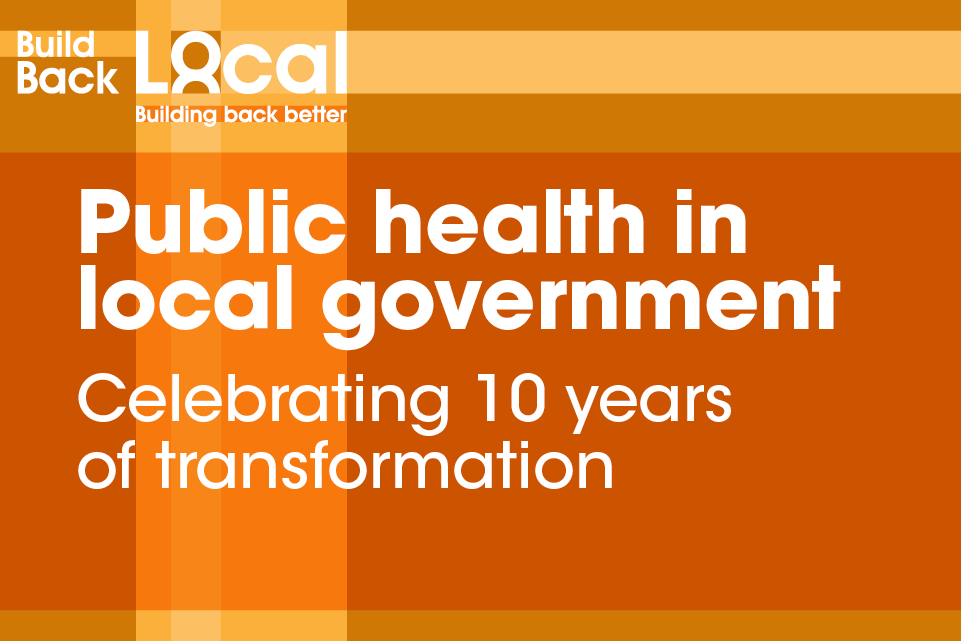An interview with Greg Fell, Director of Public Health, Sheffield City Council.
Greg Fell started his career as a biochemist and moved into social research, studying topics like smoking in pregnancy. This sparked an interest in public health and tackling inequalities. Greg qualified in public health, became a public health consultant in the NHS and subsequently DPH in Sheffield.
The move to local government
Working in a local authority is an exceptionally liberating place to be.
Greg found that working in a local authority brought freedom and opportunities. The totality of the local authority can be deployed as a vehicle for health and wellbeing. Public health brings technical understanding and an evidence-based approach. Councillors talk with local people and have a great understanding of their local communities. Public health in a democratic system can produce “a sweet spot” based on mutual skills and values which has a real impact on health.
Public health has traditionally been a local government function, and the thirty or so years it was in the NHS were an anomaly.
DsPH and their teams need to be good communicators, able to think on their feet and turn their hand to most things, as well as have expert technical knowledge.
There was an adjustment period in which the council and public health learned about each other. Sometimes expectations about what public health could do were too high. Realism was needed, as well as an understanding that improvements can only be made through partnership working. Joint work in tackling COVID-19 has greatly increased the mutual understanding.
Changes since the move
What is the point of local government if not to improve people’s wellbeing?
Greg believes that moving to local government means that public health as a discipline and a profession needs to develop its narrative for how it operates locally. For example, one of the challenges of working on social determinants or activity across multiple partnerships like ‘health in all policies’ is to devise tangible measures for what success looks like.
He identifies three broad roles for public health in local government:
- intelligence – how healthy is the population?
- commissioning services
- system leadership, convening, accelerating and “joining the dots”.
Public health needs to be responsible for managing the public health grant and must deliver services to a high standard, but it is important not to get lost in the minutiae of delivery, rather take a wider view of what can be achieved and promote collective leadership.
Capacity has been an issue in Sheffield – cuts to the public health grant and, overall, to local government funding have meant public health is working in “an asset-stripped environment”. This has limited some of its potentials, for example, it would be helpful to be able to employ programme managers to drive partnership developments.
Tackling the pandemic has shone a spotlight on the DPH and the public health team and emphasised their role as system leaders and convenors of collective leadership in improving health and wellbeing.
Some of the main achievements are in topics that have been partnership priorities, with consistent hard work and focus, for several years:
- Quitting smoking performance is around 13 per cent, on a level with far more affluent areas.
- Infant mortality rates are also comparable with more affluent areas. Partners have worked hard on risk factors such as obesity and smoking in pregnancy.
- Sheffield has ambitions to be the most active city in the country through its city-wide physical activity strategy. It is not there yet, but many improvements have been made.
- Tackling the relationship between health and work was being actively pursued pre-pandemic. A pilot funded by the Department for Work and Pensions (DWP) to support people with chronic health problems back into work was successful. Public health also has a longstanding investment in an occupational health advisory service providing occupational advice to smaller employers.
Future plans
- Partnerships and joint activity in tackling the pandemic provide opportunities for future collaboration, particularly on the issue of inequalities which the pandemic has also highlighted. An important area of opportunity is working on prevention at the neighbourhood level, in partnership with Sheffield’s large, well-established social prescribing programme in its PCNs.
- Another priority will be managing a “safe exit” from the pandemic, reviewing the state of public health services and what needs to be picked up again and given greater priority. For example, the health and work agenda and reframing health as an economic issue alongside inclusive growth and tackling poverty. Several important programmes have already been delivered, but the next stage is to develop and deliver a coherent city-wide health and work strategy.
- The HWB will be reviewed to reflect changes in structure in the council and the ICS. The health and wellbeing strategy will be refreshed to put greater focus on integration, prevention, and the social determinants of health such as improving private sector housing. Public health has funded a selective licensing scheme to have some “skin in the game”.
- Another focus will be children and young people. A range of services will be better aligned across the first 1001 days and mental health issues facing young people, including the impact of the pandemic and adverse childhood experiences, will be addressed.
While there is scope for making health improvements, the council is in a very difficult financial position. “Undoubtedly the biggest challenge to progress is the financial risk”. The NHS is the only partner with access to new money but the increasing demands on NHS services mean this may be spent on acute care. If the NHS is able to shift investment to prevention, there will be real opportunities. If not, ICSs risk being just another middle-tier organisational rearrangement.
Would you choose the same path?
Absolutely! It’s the best job in the world. I can’t imagine another job. No two days are the same. The work is often challenging but always constructive and interesting.

